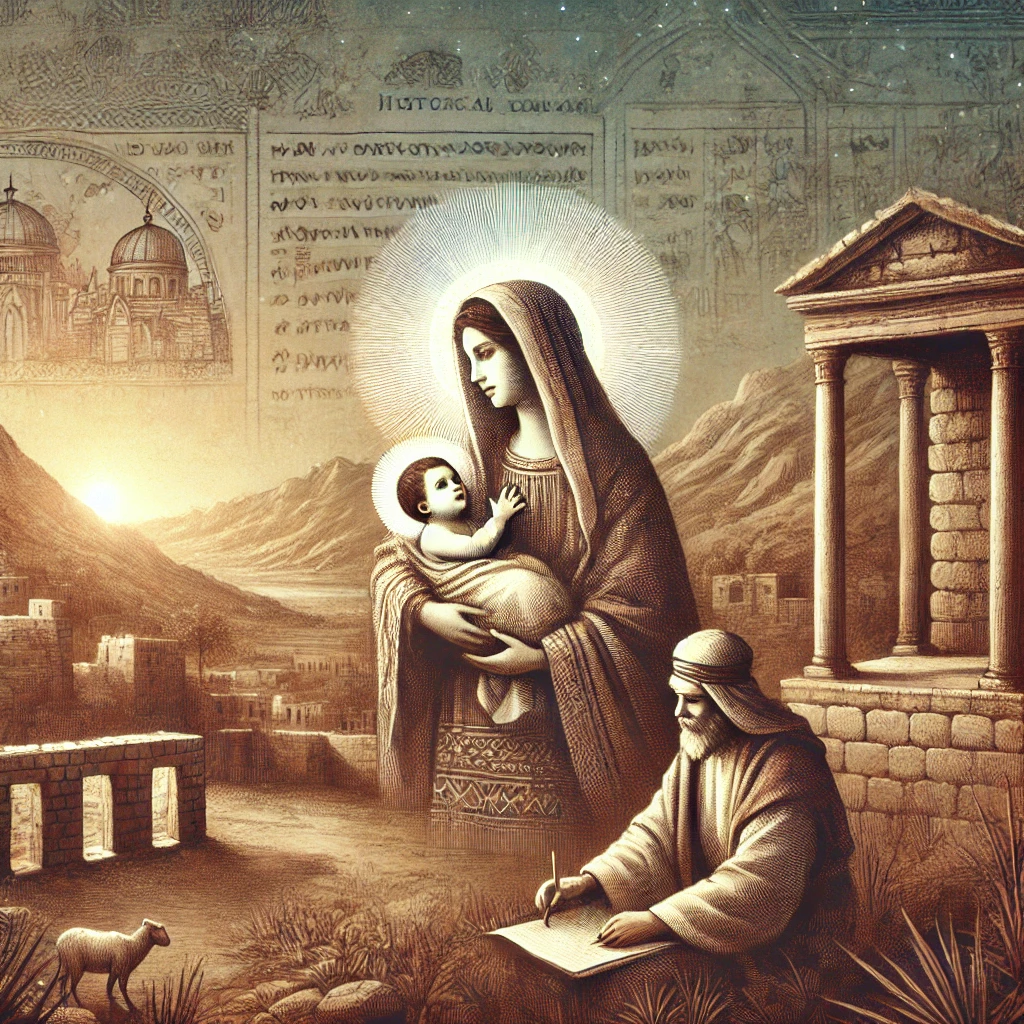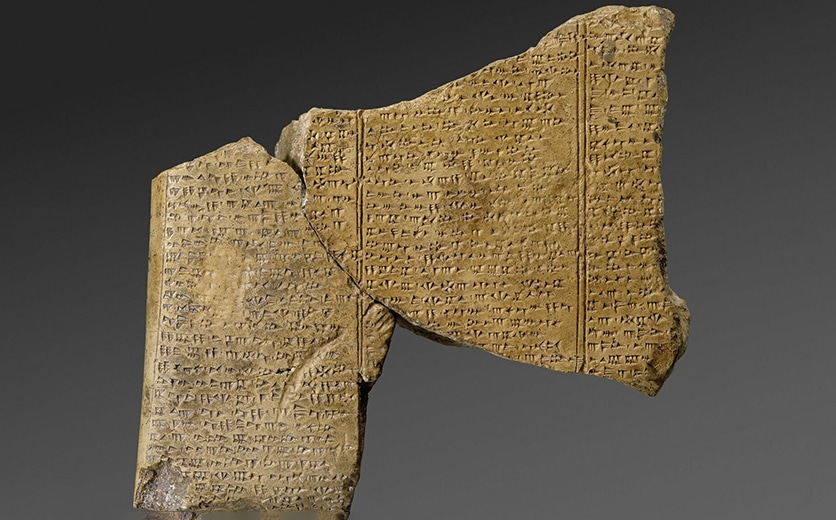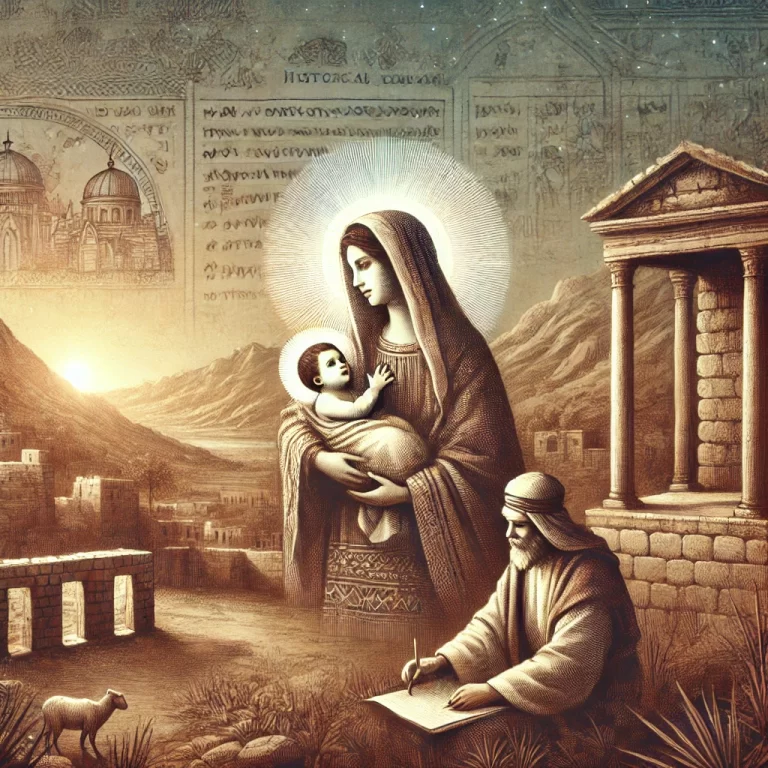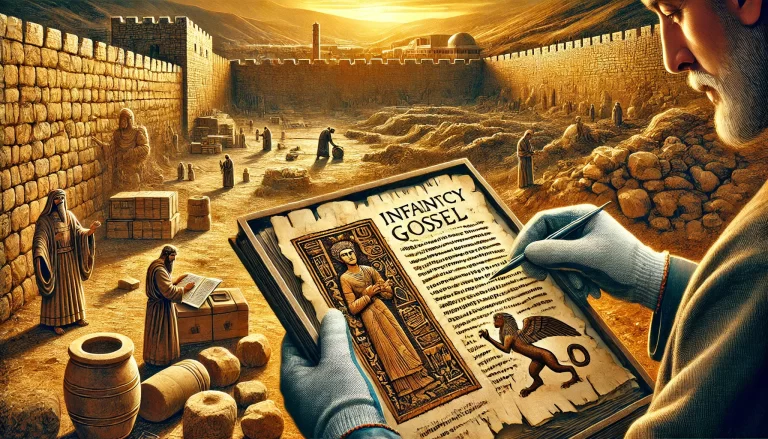
The belief that Jesus Christ was born of a virgin, as narrated in the Gospels of Matthew (Matthew 1:18-25) and Luke (Luke 1:26-38), is considered one of the most important pillars of the Christian faith. Although only two of the four canonical Gospels directly reference the virgin birth, this doctrine profoundly impacts both theology and biblical archaeology. In this article, we explore the main theological implications, textual foundations, and archaeological findings that help contextualize this unique event in the history of Christianity.
1. The Cultural Context and Jewish Marriage in the Time of Jesus
To understand how Jesus’ birth occurred, it is important to know the customs of engagement and marriage in first-century Judea.
- Betrothal Period: The groom and the bride’s family would make a formal agreement. At this stage, the couple was already legally considered married, but they could only consummate the union about a year later.
- Legal Protection: If the bride became pregnant during this period, there would be severe social and legal consequences, as the suspicion of adultery could even lead to death by stoning (cf. Deuteronomy 22:20-21).
In the case of Joseph and Mary, Matthew (1:18-19) describes that she was found to be pregnant before cohabiting with him. This detail suggests that, in the eyes of the community, a serious infraction had occurred. However, Joseph, “being a righteous man,” sought to protect her, following divine guidance not to denounce her.
2. Biblical Evidence for the Virgin Birth
The virgin birth is explicitly described in two New Testament Gospels. Matthew 1:18 states:
“Mary was pledged to be married to Joseph, but before they came together, she was found to be pregnant through the Holy Spirit” (Matthew 1:18, NIV).
Luke complements this information by recording Mary’s reaction to the angel Gabriel’s announcement:
“How will this be, since I am a virgin?” (Luke 1:34, NIV).
Matthew clarifies that when Joseph realized the pregnancy, he planned to leave Mary secretly to prevent her from being stoned—a common practice at the time for women accused of adultery (Matthew 1:19-20). However, an angel instructed Joseph to stay with Mary, confirming the divine origin of the child.
Virgin Birth of Jesus
2.1 Jesus’ Genealogy and the Mystery of Jeconiah
The genealogies presented by Matthew (1:1-16) and Luke (3:23-38) are distinct, which initially seems contradictory. Matthew traces Jesus’ lineage through Joseph, highlighting the royal lineage from Abraham to Jesus. Luke, on the other hand, presents a genealogy possibly through Mary, with completely different names leading up to David (Luke 3:23).
In Matthew 1 and Luke 3, we see two distinct lineages that converge in King David. The apparent contradiction between them is explained by a theological and cultural factor:
- Genealogy in Matthew: Highlights Joseph’s lineage, emphasizing Jesus’ legal descent from David.
- Genealogy in Luke: Possibly records Mary’s lineage, though her name is not explicitly mentioned (as it was uncommon to list women in official genealogies).
This difference is explained by the prophetic curse upon Jeconiah (Jeremiah 22:24-30), a direct ancestor of Joseph. No descendant of Jeconiah could sit on David’s throne, creating a dilemma: the Messiah needed to be of David’s lineage but could not descend directly from Jeconiah. Jesus, born of Mary, resolves this contradiction by being a descendant of David through an alternative lineage (one that bypasses Jeconiah), thereby fulfilling prophecy (2 Samuel 7:12-16).
Genealogy of Jesus
2.2 The Curse of Jeconiah (Jeremiah 22:24-30)
In Jeremiah’s prophecies, God decrees that no descendant of Jeconiah (also called Coniah) would sit on David’s throne. Matthew’s Gospel (1:11) includes Jeconiah in Joseph’s lineage, creating an apparent dilemma:
- The Messiah must be a descendant of David (cf. 2 Samuel 7:12-16).
- But a curse is placed upon Jeconiah’s lineage, which also descends from David.
The theological solution lies in the virgin birth:
- Joseph gave Jesus legal legitimacy (through adoption) but without passing Jeconiah’s “curse” biologically.
- Mary, on the other hand, descends from David through a different lineage, bypassing Jeconiah. Thus, Jesus inherits Davidic blood through Mary without violating the prophetic curse.
In this way, Jesus fulfills the divine promise of an eternal king in David’s lineage (2 Samuel 7:12-16) while remaining biologically unaffected by the prohibition against Jeconiah’s descendants.
2.3 Why Could Jesus Not Have a Human Father?
The necessity of the virgin birth goes beyond mere purity or uniqueness. Theologically, it was essential that Jesus be fully divine and fully human but without inheriting the royal lineage curse from Joseph through Jeconiah. The virgin birth allowed Jesus to be a legitimate descendant of David through His maternal lineage while preserving His messianic identity without violating the prophetic curse (Jeremiah 22:30).
3. The Prophecy of Isaiah and the Phrase “The Virgin Will Conceive”
Another frequently debated aspect is the citation of Isaiah 7:14:
“Behold, the virgin shall conceive and bear a son, and shall call his name Immanuel.”
Some critics argue that Matthew misquoted Isaiah 7:14, suggesting that the Hebrew word almah simply means “young woman” rather than “virgin.” However, recent linguistic studies and archaeological discoveries confirm that almah often meant “virgin” in the context of ancient Semitic culture.
Renowned archaeologist Cyrus H. Gordon highlights findings in Ugarit (modern-day Ras Shamra), revealing that ancient texts already prophesied the exceptional birth of a savior through a virgin. Thus, Isaiah used almah precisely because the word carried a prophetic significance indicating virginity, unlike the term betulah, which could merely mean a young woman (Gordon, 1965).
4. Theological Implications of the Virgin Birth
Theologically, the virgin birth confirms Jesus’ divine identity as the Son of God, separated from the lineage of sin and the curse inherited from human ancestors. This belief sustains the doctrine of the incarnation, fundamental to the Christian understanding of salvation, affirming Jesus as fully human and fully divine.
- Jesus’ Divinity and Humanity
- The virgin birth reveals a unique combination: Jesus possesses divine nature (conceived by the Holy Spirit) and human nature (born of Mary).
- This “hypostatic union” ensures that He fully experiences human existence yet remains sinless.
- Fulfillment of Prophecy
- Christian theologians argue that Old Testament prophecies about the Messiah converge in Jesus, honoring the Davidic lineage and the supernatural conception.
- The Role of Mary
- For Catholics, Mary remained a virgin throughout her life (perpetual virginity).
- For most Protestants, Mary was a virgin until Jesus’ birth but later lived with Joseph as a married woman, having other children (cf. Matthew 1:25).
- Regardless of perspective, both recognize the extraordinary nature of Jesus’ conception and Mary’s importance as the “servant of the Lord” (Luke 1:38).
5. The Perspective of Biblical Archaeology
Biblical archaeology also provides insights into the context of the virgin birth:
- Genealogical Records: Josephus (Jewish Antiquities) and portions of the Talmud indicate that Jews maintained genealogical records in the Jerusalem Temple, which Matthew and Luke may have accessed.
- Findings at Ras Shamra (Ugarit): Ancient Ugaritic texts confirm the use of terms equivalent to almah in the sense of “virgin,” reinforcing the biblical terminology.

6. Conclusion
The virgin birth of Jesus is not only a central Christian doctrine but also a key element for understanding the coherence between Old Testament prophecies, the Davidic promise, and biblical archaeological findings. Far from being a secondary theological claim, it is an essential link in comprehending the person and mission of Jesus Christ, who, according to Christian belief, perfectly fulfills God’s promises to His people.
Read other articles on biblical archaeology
Archaeological Discoveries in Israel: The Infancy Gospel of Jesus and Other Mysteries Revealed

